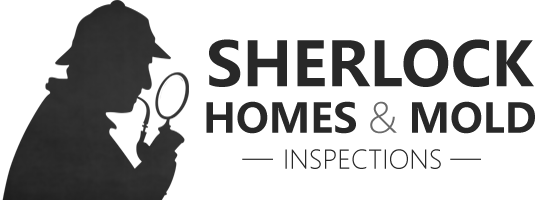Founded in 1992, The Certification Council is North America’s oldest and most prestigious certifying body dedicated to indoor air quality. The Certification Council offers consultation services in the field of professional development in certification.
ACAC (formerly known as the American Indoor Air Quality Council) is a dba of The Certification Council, and provides certifications in infection control, microbial, indoor environmental and other IAQ-related fields.
ACAC is the ONLY certifying body in the IAQ field to achieve independent third-party accreditation from the Council of Engineering and Scientific Specialty Boards (CESB).
Additionally, ACAC was the FIRST indoor air quality certifying body to:
-
Operate independently of training providers
-
Operate independently of industry membership associations
-
Refuse all revenue agreements with product manufacturers or service providers
-
Award its certifications by unanimous vote of a board of peers
-
Develop its examinations in compliance with published psychometric standards
-
Deliver its examinations via independent third-party proctors
-
Employ secure high stakes computer based testing
-
See its designations listed as prerequisites for a state license
-
See its examinations listed as prerequisites for a state license
-
See its designations specified by the US government
-
Offer third-party accredited certifications in structural drying, environmental infection control and IAQ management
-
Refuse to give exam questions or answers to prep course providers.
The ACAC Certification Process
Certification boards develop each certification exam from standard industry reference texts, never from training course curricula. ACAC exams are developed and maintained according to accreditation guidelines published by the National Commission of Certifying Agencies (NCCA) and delivered at third-party proctoring centers around the world. ACAC certification boards set passing scores for each exam using psychometrically verified statistical analysis. In an average year, only about 70% of eligible candidates pass their ACAC certification exam.
Candidates who pass their exams must await board review of their application files. ACAC certification boards are composed of no less than five (5) members, each of whom holds the certification in question. Board members may not be affiliated with those who provide prep courses for ACAC exams. Boards meet and discuss each application file and certify by unanimous vote only.
ACAC certifications are current for two years, after which time recertification is required. Certificants must document and attest to 40 hours of professional development activities during each two-year certification cycle. In 2013, more than 90% of expiring ACAC certificants recertified in order to maintain their professional designations.
Certifications for Everyone
ACAC offers professional certifications to all qualified candidates. Our certification boards grant non-accredited, vocational certifications to newly trained individuals who pass the certification exam and attest to current employment in their fields.
Candidates for accredited ACAC certifications must demonstrate verifiable field experience on a written application before taking the certification exam. ACAC staff members verify field experience documentation for every candidate.
Examples of ACAC’s Reputation
ACAC has no revenue streams outside of certification-related fees. We do not sell advertising, books, products or curriculum materials of any kind. As a result, our reputation for integrity, credibility and independence is well known:
The Federal government specifies ACAC certifications for mold workers in its Unified Facilities Guide Specifications.http://www.wbdg.org/ccb/DOD/UFGS/UFGS%2002%2085%2000.00%2020.pdf (see, for example, section 1.2.16; page 5, item 4; and page 34, item 4).
The State of New Hampshire requires all mold assessors to be certified by ACAC or hold another “valid national third party certification for mold assessment,” which it defines as “a certification approved by a national nonprofit organization whose programs are accredited by ANSI (American National Standards Institute), CESB (Council of Engineering and Scientific Specialty Boards), NCCA (National Commission for Certifying Agencies), or any other accrediting body that operates in compliance with the ISO (International Organization for Standardization) standard for accrediting organizations.” ACAC is currently the only organization that meets the law’s requirements.
The State of Maryland requires ACAC certification as a condition of licensing, requiring all license applicants to be certified by ACAC “or any other internationally recognized accreditation body that is recognized by the Maryland Home Improvement Commission (MHIC) and operates independently of training organizations or industry trade associations.” (Maryland Business Regulation Code, Title 8-701 (2012)). ACAC is currently the only organization that meets the law’s requirements.
The State of Florida selected ACAC certification exams for use in its mold licensing program. ACAC exams are verified as psychometrically sound and independent from training courses.
The American Lung Association recommends ACAC certification throughout its “Standard of Care for the New Hampshire Mold Industry: A Guide for Citizens Affected by Mold and Moisture in New Hampshire Buildings.” http://www.acac.org/forms/otherpdfs/alanhmold.pdf
The New York State Toxic Mold Task Force recognized ACAC certifications in its 2010 report to the New York state legislature. Current New York Assembly Bill A01466 incorporates findings from the Task Force report. http://www.acac.org/cert/NY.aspx
ACAC Certification means Integrity, Credibility and Independence

Recent Comments